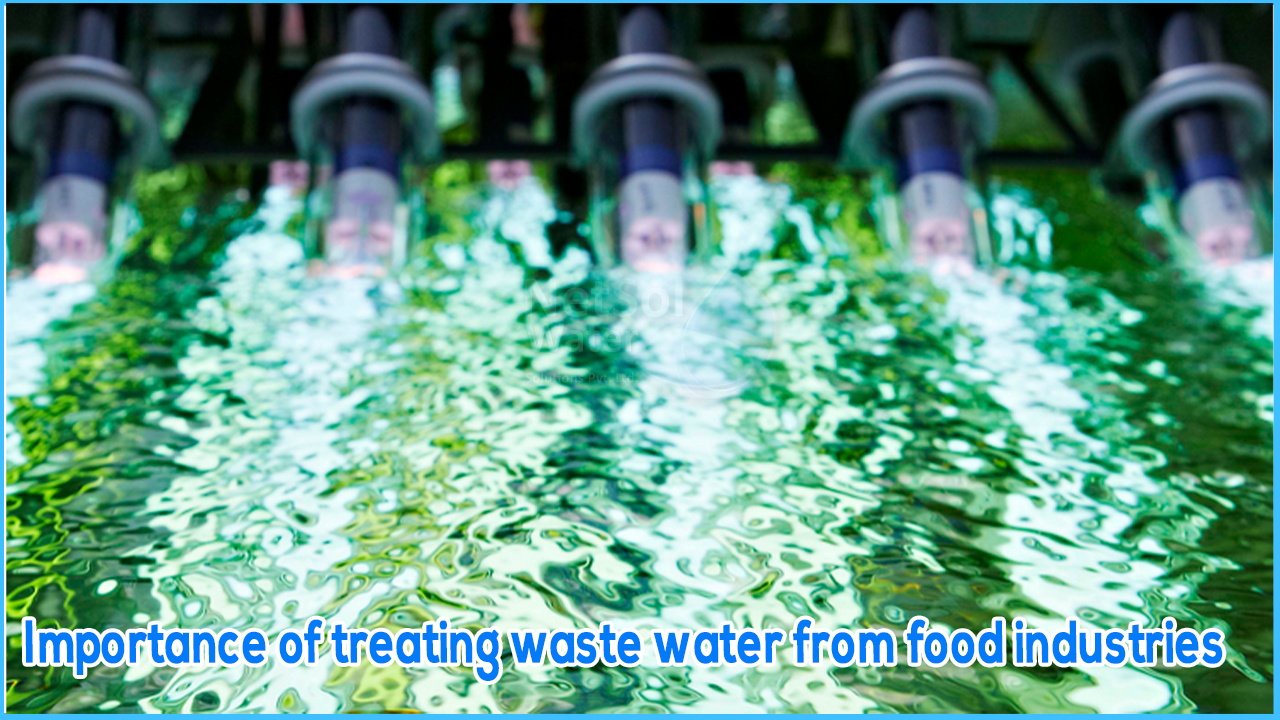Water is an essential ingredient in the food and beverage industries. With recent quality concerns, it is more important than ever for manufacturers to treat water and ensure it is safe to consume. Water treatment methods efficiently remove and particles from the water, leading to a high-end product. Water reuse and recycling techniques can also be used by processors to reduce their water footprint and combat freshwater scarcity.
IMPORTANCE OF WASTE WATER TO BE REUSED
Despite the fact that the Earth is covered in water, access to safe drinking water is difficult to come by. In fact, approximately 844 million people worldwide do not have access to safe drinking water. Drought has resulted in a lack of surface and groundwater availability, causing a slew of shortage issues. A number of clean water sources have also been contaminated by chemical runoff.
Because there is a large amount of water, there is also a large amount of wastewater, therefore, proper wastewater treatment solutions using effective treatment plans are required. The volume and properties of food industry wastewater vary depending on the product and production procedures. Many industries are investigating water recycling and reuse strategies in order to improve sustainability. While water scarcity is a major threat to food and beverage businesses, water conversation methods can help them reduce their water footprint and operate more efficiently. Thereafter, recycling has proven to be extremely important in countries where water scarcity is a problem, and it is more of a necessity than an option.
One of the treatment plant's primary functions is to remove pathogens and impurities that are harmful to our health. The procedure entails introducing an absorbent material into the water, filtering it, and adding a small amount of disinfectant. The treated wastewater can be reused or discarded for a variety of purposes.
HOW CAN WASTE WATER BE RE-USED IN FOOD INDUSTRIES?
Water can be reused by food processors for landscaping, equipment washing, cooling towers, and other purposes. Treated wastewater is never in contact with food. Water has also been recycled for use in boilers, evaporators, chillers, dust control, and irrigation systems. There had been several changes in laws regarding water recycling, as previously, the use of recycled water was restricted to specific sectors. It was used for cooling, general facility cleaning, and agricultural purposes. Direct reuse was not previously accepted in the food industry, however, it is now acceptable to use recycled water in processes such as initial vegetable washing.
WHAT IS THE ROLE OF NETSOL WATER SOLUTIONS IN WASTE WATER TREATMENT?
Wastewater treatment is not something to be taken lightly, as a simple error can have serious consequences for the environment and humans. The process must adhere to certain legal requirements and meet quality and safety standards.
The tal EnvironmenProtection Agency currently provides guidelines for municipal water reuse but not for commercial water reuse. Water reuse in production guidelines is being developed by the food manufacturing industry and certain water-quality stakeholders. These organizations promote the benefits of water reuse and legislation through workshops, organized studies, and sustainable practices.
Henceforth, Netsolsupplies a varieties of waste water treatment plants for all industries, and in order to meet the needs of the customers, Netsol's costs are very low in comparison to others in the market. They also offer simple installation and low maintenance, as well as increased product stability.




